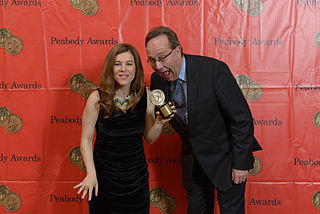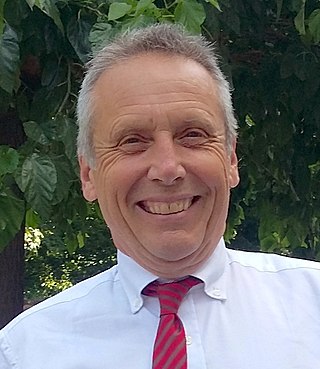
Sir Sandford Fleming was a Scottish Canadian engineer and inventor. Born and raised in Scotland, he emigrated to colonial Canada at the age of 18. He promoted worldwide standard time zones, a prime meridian, and use of the 24-hour clock as key elements to communicating the accurate time, all of which influenced the creation of Coordinated Universal Time. He designed Canada's first postage stamp, produced a great deal of work in the fields of land surveying and map making, engineered much of the Intercolonial Railway and the first several hundred kilometers of the Canadian Pacific Railway, and was a founding member of the Royal Society of Canada and founder of the Canadian Institute.
The Royal Canadian Institute for Science (RCIScience), known also as the Royal Canadian Institute, is a Canadian nonprofit organization dedicated to connecting the public with Canadian science.

Williamina Paton Stevens Fleming was a Scottish astronomer. She was a single mother hired by the director of the Harvard College Observatory to help in the photographic classification of stellar spectra. She helped develop a common designation system for stars and cataloged more than ten thousand stars, 59 gaseous nebulae, over 310 variable stars, and 10 novae and other astronomical phenomena. Among several career achievements that advanced astronomy, Fleming is noted for her discovery of the Horsehead Nebula in 1888.

Helen Battles Sawyer Hogg was an American-Canadian astronomer who pioneered research into globular clusters and variable stars. She was the first female president of several astronomical organizations and a scientist when many universities would not award scientific degrees to women. Her scientific advocacy and journalism included astronomy columns in the Toronto Star and the Journal of the Royal Astronomical Society of Canada. She was considered a "great scientist and a gracious person" over a career of sixty years.

Vera Florence Cooper Rubin was an American astronomer who pioneered work on galaxy rotation rates. She uncovered the discrepancy between the predicted and observed angular motion of galaxies by studying galactic rotation curves. By identifying the galaxy rotation problem, her work provided evidence for the existence of dark matter. These results were later confirmed over subsequent decades. The Vera C. Rubin Observatory in Chile is named in her honor.

John Charles Polanyi is a German-born Canadian chemist. He was awarded the 1986 Nobel Prize in Chemistry for his research in chemical kinetics.

Bob McDonald OC is a Canadian author and science journalist. He is the national science commentator for CBC Television and CBC News Network, and since 1992 has been the host of a weekly radio science show, Quirks & Quarks which draws approximately 800,000 listeners each week.
Terence Dickinson was a Canadian amateur astronomer and astrophotographer who lived near Yarker, Ontario, Canada. He was the author of 14 astronomy books for both adults and children. He was the founder and former editor of SkyNews magazine. Dickinson had been an astronomy commentator for Discovery Channel Canada and taught at St. Lawrence College. He made appearances at such places as the Ontario Science Centre. In 1994, the International Astronomical Union committee on Minor Planet Nomenclature named asteroid 5272 Dickinson in honour of his "ability to explain the universe in everyday language".
Sidney Van den Bergh, OC, FRS is a retired Dutch-Canadian astronomer.
John "Jack" Borden Newton is a Canadian astronomer, best known for his publications and images in amateur astrophotography.
Scott Duncan Tremaine is a Canadian-born astrophysicist. He is a fellow of the Royal Society of London, the Royal Society of Canada and the National Academy of Sciences. Tremaine is widely regarded as one of the world's leading astrophysicists for his contributions to the theory of Solar System and galactic dynamics. Tremaine is the namesake of asteroid 3806 Tremaine. He is credited with coining the name "Kuiper belt".
Shar Levine, CM is a Canadian children's author, and designer.

The American Institute of Physics (AIP) instituted their Science Writing Award to "promote effective science communication in print and broadcast media in order to improve the general public's appreciation of physics, astronomy, and allied science fields." The winner receives $3000, and an engraved Windsor chair. The award is given in three broad categories: 1) science writing, 2) work intended for children, and 3) work done in new media. The AIP stopped issuing awards to three categories: 1) work by a professional journalist 2) work by a scientist, and 3) broadcast media

Andrew Fraknoi is a retired professor of astronomy recognized for his lifetime of work using everyday language to make astronomy more accessible and popular for both students and the general public. In 2017 Fraknoi retired from his position as Chair of the Department of Astronomy at Foothill College. In retirement he continues to teach through the Fromm Institute for Lifelong Learning and the Osher Lifelong Learning Institute at San Francisco State University, to give public lectures, and to add to his body of written work. He is the recipient of numerous awards and honors in his field.

Katerina Cizek is a Canadian documentary director and a pioneer in digital documentaries. She is the Artistic Director, Co-Founder and Executive Producer of the Co-Creation Studio at MIT Open Documentary Lab.
The Sandford Fleming Medal was instituted in 1982 by the Royal Canadian Institute for Science (RCIScience). It consists of the Sandford Fleming Medal with Citation. It is named in honour of Sandford Fleming and awarded annually "to an individual working in Canada who has made outstanding contributions to science communication."

Penelope Dawn (Penny) Park was a Canadian science journalist.

Nicholas Kaiser was a British cosmologist.
James Nairn Patterson "Pat" Hume was a Canadian professor and science educator who has been called "Canada's pioneer of computer programming". He was a professor of Physics and of Computer Science at the University of Toronto, and he served as the second Master of Massey College from 1981 to 1988.

André Pierre Picard is a Canadian journalist and author specializing in health care issues. He works as a reporter and a columnist for the national newspaper The Globe and Mail. As of 2020, he runs the news organization's office in Montreal. He currently lives in Vancouver.











